CUHK MOE-Microsoft Key Laboratory Workshop on Big Data Research
.png)
Date: 20 November 2013
Venue: Cho Yiu Hall, University Administration Building, CUHK
Time: 10:45 am – 11:05 am
Title: Back to the Future: Sense-and-Respond Public Transit for Historic Urban Centres
Speaker: Professor Janny M.Y. LEUNG
Department of Systems Engineering and Engineering Management, CUHK
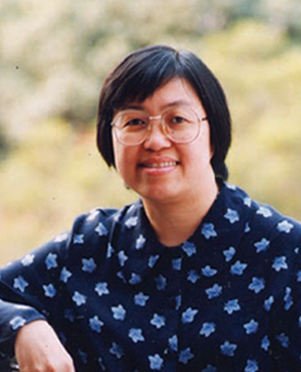
Abstract:
With the rampant pace of urbanisation, many historic city centres have either been choked by traffic congestion and pollution, or hollowed out as economic activities shift to suburban centres. To maintain or re-create a clean, green and vibrant city centre, city planners are looking to design or re-design low-emissions high-capacity public transit systems (e.g. electric trams and trolleys) to provide comprehensive access to city centres.
The goal of this project is to explore how the pervasiveness of auto-sensed data in urban informatics can be exploited in the design and operation of an environmentally-friendly, efficient and effective urban public transit system that can respond in real time to the transport needs of people in city centres in their daily economic and recreational activities.
We will investigate Sensing, Information Processing and Data Mining techniques to derive real-time demand profile for the transport needs in an urban area. This information would be incorporated into a real-time sense-and-respond operations scheduling and despatch system for public transit. The results will contribute an exemplar for how a city of the future can maintain or re-vitalise its central urban area as a focus of economic and recreational activities, with efficient access free of congestion and pollution.
About the speaker:
Janny Leung is a professor in the Systems Engineering and Engineering Management Department of the Chinese University of Hong Kong. She obtained an S.B. degree in Applied Mathematics from Radcliffe College, a B.A. in Mathematics from Oxford University and a Ph.D. in Operations Research from the Massachusetts Institute of Technology. Before returning to Hong Kong, she was a faculty member at Yale University and the University of Arizona.
Her main research interests are combinatorial optimisation and logistics; she has investigated problems in public transit scheduling, supplier selection, material handling, routing and distribution planning, facility layout, production scheduling and baseball timetabling. Her research has been supported by the Hong Kong Research Grants Council and the (US) National Science Foundation.
Currently, she serves on the editorial boards of several leading journals in transportation, logistics and operations research. She is an active member of INFORMS, having served as President of the Forum on Women in OR/MS (2002). She was the Scientific Programme Chair for the 19th Triennial Conference of the International Federation of Operational Research Societies (IFORS) held in Melbourne in 2011.
Time: 11:05 am – 11:25 am
Title: Social Computing in the Big Data Era
Speaker: Professor Irwin KING
Department of Computer Science and Engineering, CUHK
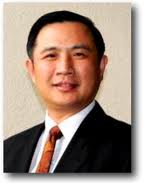
Abstract:
The Big Data Era has ushered in a new wave of research that investigates how we can better handle data with characteristics such as high volume, velocity, veracity, and variety. Social Computing examines the collective intelligent behavior resulted from interactions among social entities. In this talk, I plan to focus on our recent work in social computing, e.g., on social recommendations and some online algorithms for a wide-range of applications and services in the era of Big Data.
About the speaker:
Prof. Irwin King's research interests include machine learning, social computing, web intelligence, data mining, big data, and multimedia information processing. In these research areas, he has over 200 technical publications in journals and conferences. In addition, he has contributed over 30 book chapters and edited volumes. He is Associate Editor of the ACM Transactions on Knowledge Discovery from Data (ACM TKDD), Journal of Neural Networks, and a former Associate Editor of the IEEE Transactions on Neural Networks (TNN).
Prof. King is Associate Dean (Education) at the Engineering Faculty and Professor at the Department of Computer Science and Engineering, The Chinese University of Hong Kong. Recently, he was on leave with AT&T Labs Research, San Francisco and also taught Social Computing and Data Mining as a Visiting Professor at UC Berkeley. He received his B.Sc. degree in Engineering and Applied Science from California Institute of Technology, Pasadena and his M.Sc. and Ph.D. degree in Computer Science from the University of Southern California, Los Angeles.
Time: 11:25 am – 11:45 am
Title: Image Layer Separation with a New Metric on Scale
Speaker: Professor Jiaya JIA
Department of Computer Science and Engineering, CUHK
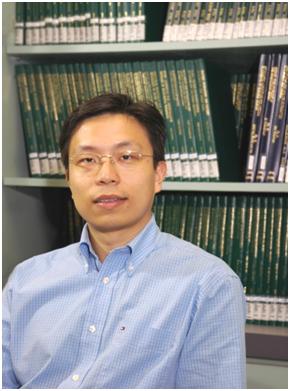
About the speaker:
Jiaya Jia received the PhD degree in Computer Science from Hong Kong University of Science and Technology in 2004 and is currently an associate professor in Department of Computer Science and Engineering at the Chinese University of Hong Kong (CUHK). He was a visiting scholar at Microsoft Research Asia from March 2004 to August 2005 and conducted collaborative research at Adobe Systems in 2007. He heads the research group in CUHK, focusing specifically on computational photography, 3D reconstruction, practical optimization, and motion estimation. He currently serves as an associate editor for the IEEE Transactions on Pattern Analysis and Machine Intelligence (TPAMI) and served as an area chair for ICCV 2011 and ICCV 2013. He was on the program committees of several major conferences, including ICCV, ECCV, ICCP, and CVPR, and co-chaired the Workshop on Interactive Computer Vision, in conjunction with ICCV 2007. He received the Young Researcher Award 2008 and Research Excellence Award 2009 from CUHK. He is a senior member of the IEEE.
Date: 20 November 2013
Venue: LT2, Science Centre, CUHK
Time: 1:30 pm – 2:10 pm
Title: Search the “Elementary Particles” in Human Speech – Can we render a monolingual speaker’s speech in a different language?
Speaker: Dr. Frank SOONG
Principal Researcher/ Manager, Speech Group, Microsoft Research Asia
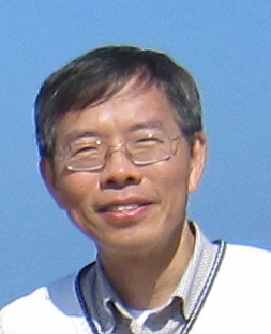
Abstract:
In this talk, we will raise an interesting question: Can we find the “elementary particles” of a person’s speech in one language and use them for rendering his/her voice in a different language? A positive “yes” answer and the found “elementary particles” can then have many useful applications, e.g. mixed code TTS, language learning, speech-to-speech translation, etc. We try to answer the question by limiting ourselves first to how to train a TTS in a different language with speech collected from a monolingual speaker. Additionally, a speech corpus in the targeted new language is recorded by a reference speaker. We then use our “trajectory tiling algorithm,” invented for synthesizing high quality, unit selection TTS, to “tile” the trajectories of all sentences in the reference speaker’s corpus with the most appropriate speech segments in the monolingual speaker’s data. To make the tiling proper across two different (reference and monolingual) speakers, the difference between them needs to be equalized with appropriate vocal tract length normalization, e.g., a bilinear warping function or formant mapping. All tiled, sentences are then used to train a new HMM-based TTS of the monolingual speaker but in the reference speaker’s language. Different length units of the ‘elementary particles” have been tried and a label-less frame length (10 ms) segments have been found to yield the best TTS quality. Some preliminary results also show that training a speech recognizer with speech data of different languages tends to improve the ASR performance in each individual language. Also, in addition to the fact that audio “elementary particles” of human speech in different languages can be discovered as frame-level speech segments, the mouth shapes of a mono-lingual speaker have also been found adequate for rendering the lips movement of talking heads in different languages. Various demos will be shown to illustrate our findings.
About the speaker:
Frank K. Soong is a Principal Researcher, Speech Group, Microsoft Research Asia (MSRA), Beijing, China, where he works on fundamental research on speech and its practical applications. His professional research career spans over 30 years, first with Bell Labs, US, then with ATR, Japan, before joining MSRA in 2004. At Bell Labs, he worked on stochastic modeling of speech signals, optimal decoder algorithm, speech analysis and coding, speech and speaker recognition. He was responsible for developing the recognition algorithm which was developed into voice-activated mobile phone products rated by the Mobile Office Magazine (Apr. 1993) as the “outstandingly the best”. He is a co-recipient of the Bell Labs President Gold Award for developing the Bell Labs Automatic Speech Recognition (BLASR) software package.
He has served as a member of the Speech and Language Technical Committee, IEEE Signal Processing Society and other society functions, including Associate Editor of the IEEE Speech and Audio Transactions and chairing IEEE Workshop. He published extensively with more than 200 papers and co-edited a widely used reference book, Automatic Speech and Speech Recognition- Advanced Topics, Kluwer, 1996. He is a visiting professor of the Chinese University of Hong Kong (CUHK) and a few other top-rated universities in China. He is also the co-Director of the MSRA-CUHK Joint Research Lab. He got his BS, MS and PhD from National Taiwan Univ., Univ. of Rhode Island, and Stanford Univ, all in Electrical Eng. He is an IEEE Fellow for contributions to digital processing of speech.
Time: 2:10 pm – 2:50 pm
Title: Incentives and Intermediaries in Network Diffusions?
Speaker: Dr. Wei CHEN
Senior Researcher, Microsoft Research Asia
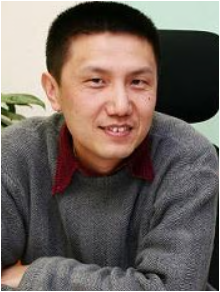
Abstract:
Online social and information networks such as Facebook and Twitter provide large platforms for studying the diffusion of news, ideas, innovations, adoption of products, etc., which we all refer to as influence diffusion. In this talk, I will first briefly mention our recent work in the area of computational social influence, which aims at empowering social influence with computational tools such as modeling, algorithm design, data mining, and algorithmic game theory. Then I will present two of my recent studies in more detail. The first study is on Sybil-proof mechanisms for query incentive networks, where we design efficient incentive mechanisms to encourage users in the network to propagate a query for a hard problem, and in the meantime discourage users from gaming the system for profit. The second study is on the problem of active friending, where we design an efficient algorithm to select a small set of intermediary nodes between a source and a target, such that through these intermediary nodes, the probability that the target eventually accepts the friending request from the source is maximized. These two studies demonstrate how to apply game-theoretic and algorithmic approaches to the study of computational social influence, and how it might be applied in practice such as crowd-sourcing and friend recommendations.
About the speaker:
Wei Chen is a Senior Researcher in Microsoft Research Asia, Beijing, China. He is also an Adjunct Professor at Tsinghua University. He received Bachelor and Master of Engineering Degrees from Tsinghua University, and Ph.D. Degree from Cornell University. His research interests include computational and game theoretic aspects of social networks, algorithmic game theory, distributed computing, and fault tolerance. He won the William C. Carter Award in 2000 in the area of dependable computing for his dissertation research on failure detection, and his co-authored paper on game-theoretic community detection won the best student paper award in ECML PKDD 2009. He has done a series of research work on social influence dynamics and social influence maximization, which appeared in recent KDD, ICDM, SDM, WSDM, ICWSM, ICML and AAAI conferences. He is also active in social network research community, including organizing an international workshop, guest-editing ACM TKDD special issue on computational aspects of social networks, and participating in program committees of KDD, WWW, WSDM, SIGMOD, ICDE, etc. He is a member of Task Force on Big Data of Chinese Computer Federation. For more information, you are welcome to visit his home page at http://research.microsoft.com/en-us/people/weic/.
Time: 2:50 pm – 3:30 pm
Title: Software Analytics in Practice — Approaches and Experiences
Speaker: Dr. Dongmei ZHANG
Principal Researcher/ Research Manager, Microsoft Research Asia
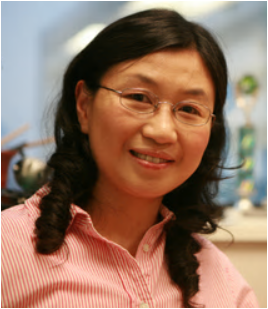
Abstract:
A huge wealth of various data exists in the software development process, and hidden in the data is information about the quality of software and services as well as the dynamics of software development. With various analytic and computing technologies, software analytics is to enable software practitioners to performance data exploration and analysis in order to obtain insightful and actionable information for data-driven tasks around software and services.
Software analytics is naturally tied with the software development practice mainly because (1) the data under study comes from real practice; (2) there are real problems to be answered using the data; (3) one of the success metrics of software analytics research is its influence and impact on the development practice. The process of transferring software analytics research results into practical use, a.k.a. technology transfer, is full of challenges, such as dealing with the scale and complexity of the real data, walking the last mile to build tools working well in practice instead of only being a demo or prototype, and effectively engaging the software practitioners to adopt the tools and provide feedback.
At the Software Analytics group in Microsoft Research Asia, we are conducting research in software analytics; and we also collaborate extensively with product teams across Microsoft. In this talk, I will discuss some of the research projects in our group; and I will also use some case studies to share our approaches and experiences in technology transfer.
About the speaker:
Dongmei Zhang is a Principal Researcher and research manager at the Software Analytics group of Microsoft Research Asia (MSRA). Her research interest mainly focuses on utilizing the data-driven approach to address various challenges in the software domain, including software quality, user experience, and development productivity. She founded the Software Analytics group at MSRA in 2009. Since then she has been leading the group to research software analytics technologies. Her group collaborates closely with multiple product teams in Microsoft, and has developed and deployed software analytics tools that have created high business impact. Dr. Zhang received her Ph.D. in Robotics from Carnegie Mellon University. She received her B.E. and M.E. in Automatic Control from Tsinghua University.
Time: 2:10 pm – 2:50 pm
Title: Interactions and Devices for the Portables, Wearables and beyond
Speaker: Dr. FUKUMOTO Masaaki
Lead Researcher, Microsoft Research Asia
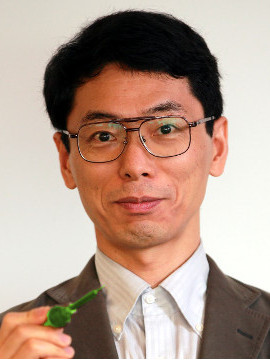
Abstract:
Our daily computing scene is drastically changing, these days everyone grab small brick and flick their finger all the day (no one could expect current situation in 10 years ago). However, current interaction style has many issues; for example, small display is hard to see and also touch panel has no tactile feeling for pushing buttons. Moreover next big wave will come -- Wearables. People will attach tiny high-tech accessories and deeply dive into the Internet in 24 hours, and our interaction style will be completely changed. We should tackle existing issues and also find ideal interaction styles for coming Wearables-age. I will talk about some examples for improving interaction of portable systems and smartphones by using haptic information, and also requirements for achieving "fulltime-wear" interaction.
About the speaker:
Dr. FUKUMOTO Masaaki received a Ph.D. Degree from the University of Electro-Communications in 2000. He was with the NTT Human Interface Laboratories from 1990 to 1998, and the NTT DoCoMo Research Laboratories from 1998 to 2013. He is currently a Lead Researcher at the Microsoft Research. His research interests include portable and wearable interface devices, and also interaction mechanisms that utilize characteristics or information of our living-body.

